DR Congo protests: Why have they erupted?
- Published
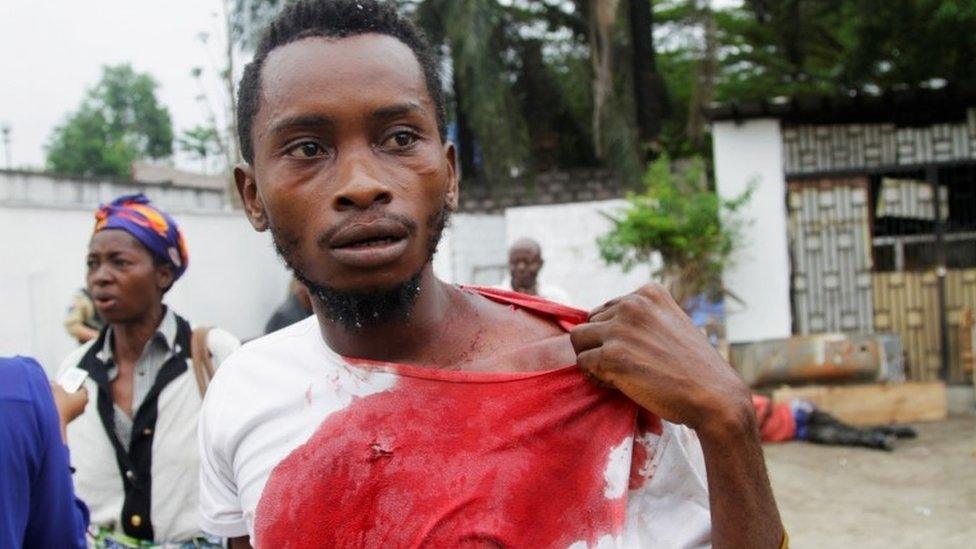
The security situation in the Democratic Republic of Congo appears to be deteriorating.
The headquarters of thee opposition parties have been torched in the capital, Kinshasa, hours after an opposition-organised protest triggered violent clashes with police, leaving at least 17 people dead.

What lies behind the opposition protests?
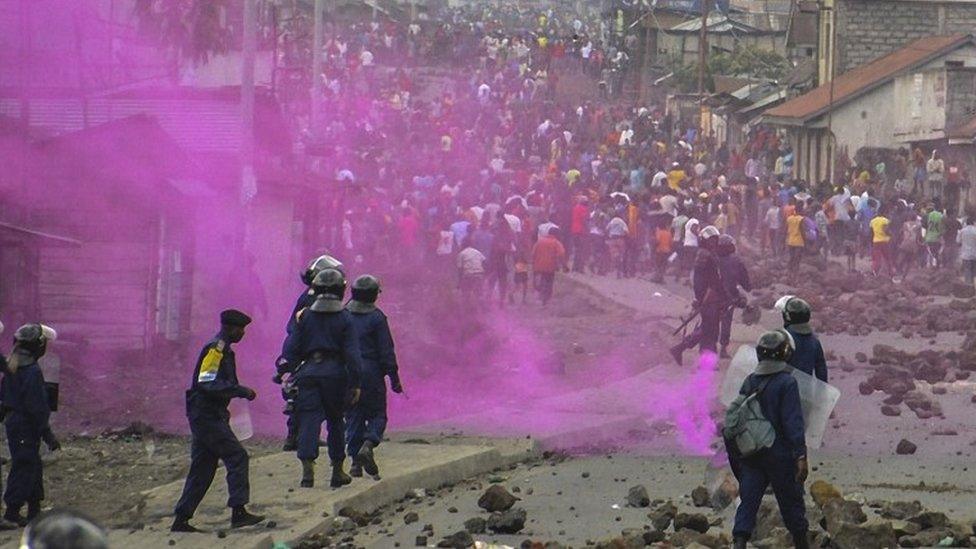
Police have vowed to main law and order in DR Congo
The opposition fears that President Joseph Kabila will prove to be similar to some of his regional counterparts by hanging on to power through sleight of hand.
Their concerns have been fuelled by the fact that the government is laying the groundwork for postponing presidential elections due in November.
Following a case brought by the ruling party, the Constitutional Court - comprising the country's most senior judges - ruled in July that Mr Kabila can remain in office if logistical difficulties force a delay in the elections.
And a delay is likely, as the electoral commission has said it needs at least until July 2017 to register more than 30 million voters in a country similar in size to Western Europe, but with one of the worst transport and communication links in the world.
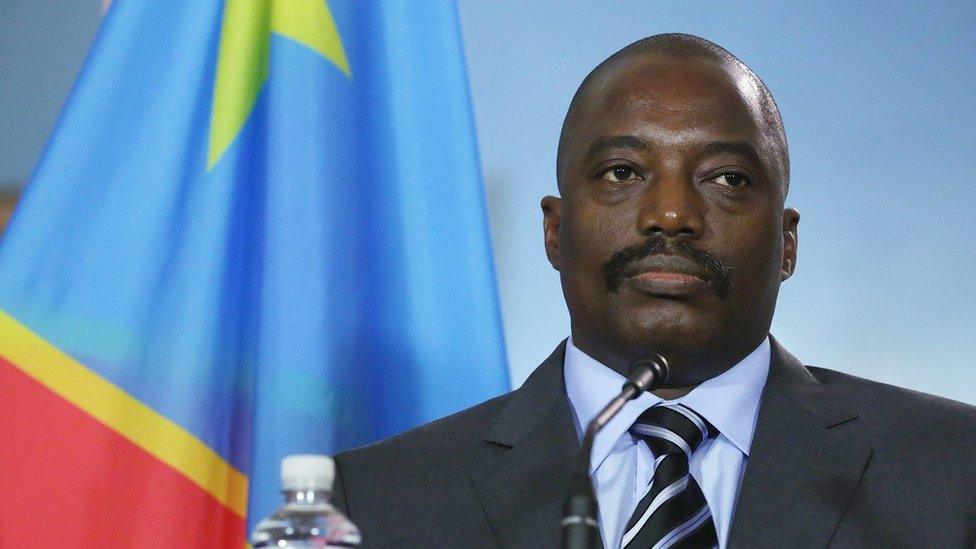
Mr Kabila, 45, is one of Africa's youngest rulers
And its east is mostly lawless with myriad militias controlling patches of territory, making voter registration more difficult.
So far, Mr Kabila is tight-lipped, leaving his political allies to do his bidding for him.

Why won't he face the electorate?
He cannot - and that is his problem. Since taking power following the assassination of his father in 2001, he has won two elections.
The constitution bars him from seeking a third term. So the best way for him to remain in power is to delay the election.
Another option is to lift the two-term presidential limit, but Mr Kabila might struggle to garner a two-thirds parliamentary majority to push through such an unpopular constitutional amendment.
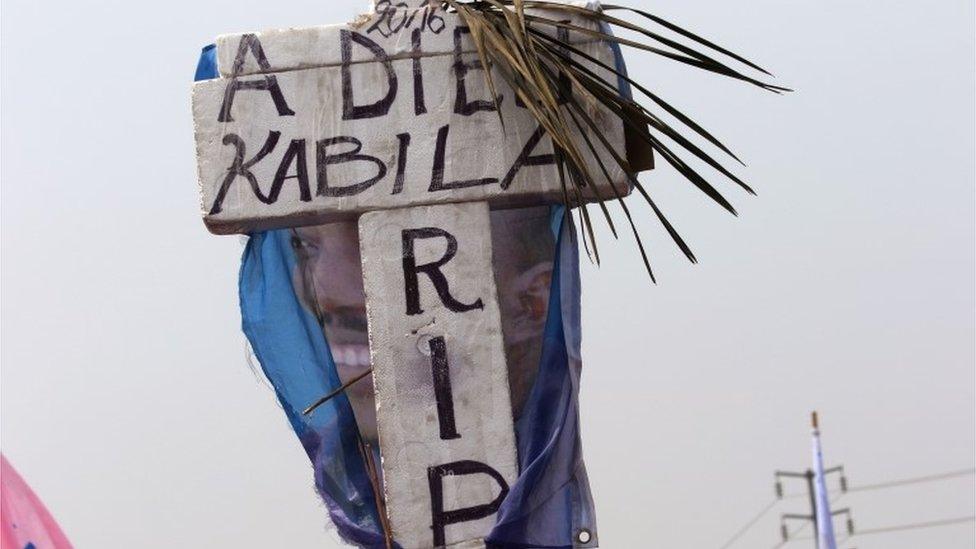
Opposition supporters say they will not allow Mr Kabila to remain in office beyond the end of the year
And he may be aware of the fate of other leaders who tinkered with the constitution - especially Burkina Faso's long-serving ruler Blaise Compaore who was overthrown in a popular uprising in 2014 following his bid to alter the constitution so that he could seek re-election.

Won't foreign powers force him to hold the November election?
This is unlikely. Influential African leaders such as Angola's Jose Eduardo dos Santos (in power since 1979), Zimbabwe's Robert Mugabe (since 1980) and Uganda's Yoweri Museveni (since 1986) have a reputation of seeking to be presidents-for-life. So, the chances of them pushing for an end to Mr Kabila's 16-year rule are remote.
The African Union has appointed former Togolese premier Edem Kodjo as mediator, but the opposition has refused to deal with him and has accused him of being biased in favour of Mr Kabila.
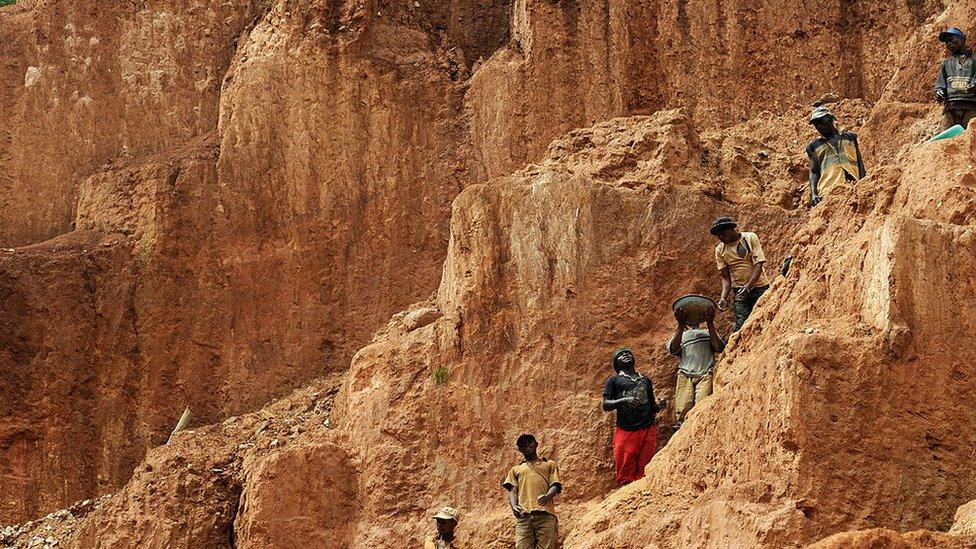
DR Congo is rich in resources but most of its people are poor
As for Europe and the US, they have relatively little leverage over Mr Kabila because DR Congo has the natural resources that they need - including diamonds, gold, copper, zinc, cobalt, coltan, used in mobile phones, and cassiterite, essential for making tin cans.
Plus there is no certainty that they want Mr Kabila out - they may publicly call on him to step down but privately they may take the view, better the devil you know than the devil you don't.

What about the UN force in DR Congo?
Mr Kabila has been pushing for its withdrawal from DR Congo, alleging that its presence undermines the sovereignty of the country.
So it is unlikely to get involved for fear of antagonising Mr Kabila, and jeopardising its peacekeeping operations in the east.
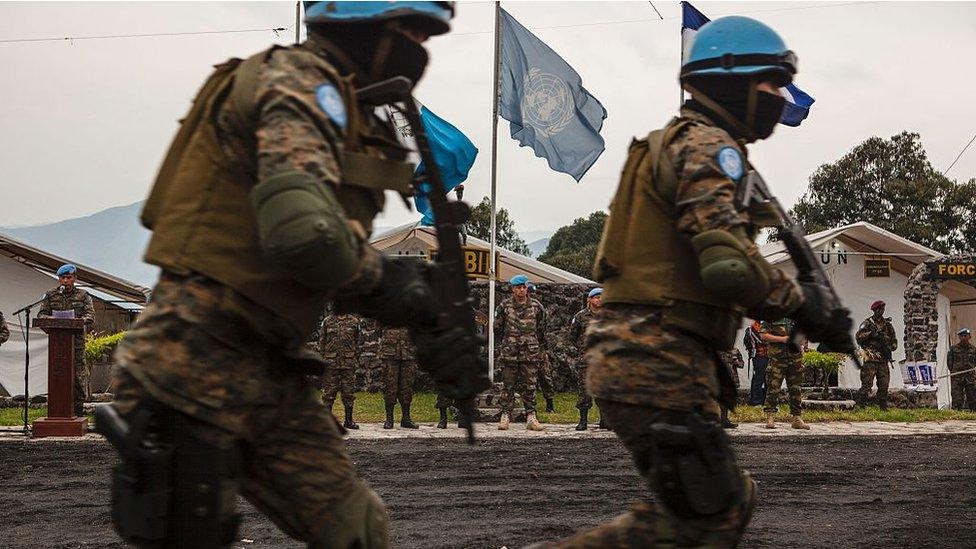
UN troops operate mainly in the lawless east
The UN has about 20,000 troops in DR Congo, making it one of the biggest peacekeeping missions in the world.
Although it is often criticised for failing to do enough to disarm militias in the east, its presence is seen as vital in maintaining regional stability.
DR Congo has been at the centre of what has been dubbed Africa's World War, with six nations fighting a proxy war which led to the loss of some five million lives between 1994 and 2003.
Mr Kabila has used the conflict to his advantage by portraying himself as a guarantor of stability.

But can he survive the protests?
Having twice lost to Mr Kabila in election, DR Congo's main opposition leader, the 83-year-old Etienne Tshisekedi, knows that age is against him in his bid to secure the presidency.
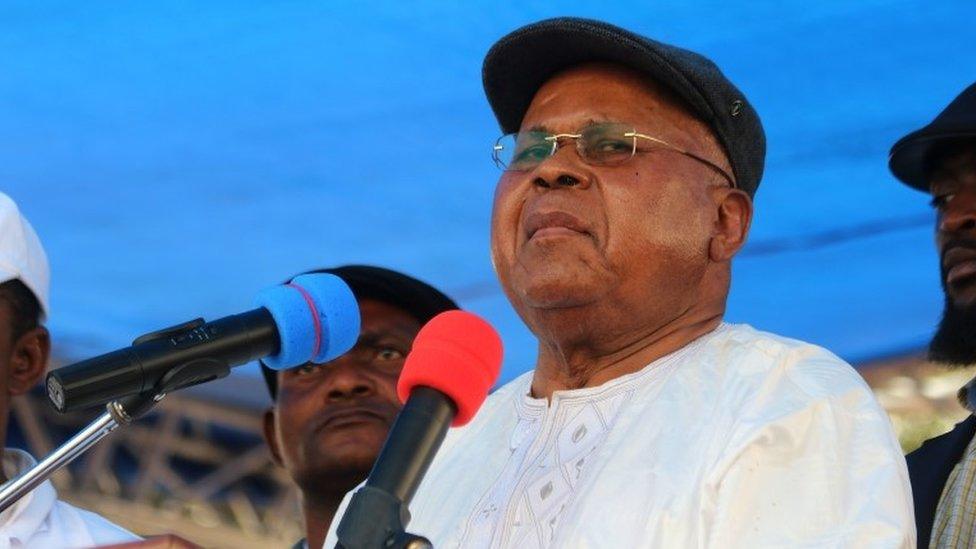
Mr Tshisekedi has strong support in the capital, Kinshasa
So he will be hoping that if Mr Kabila does not bow out gracefully, he will be toppled in a popular uprising - like Mr Compaore or Egypt's Hosni Mubarak.
As for the 45-year-old president, he has been relying on a mixture of repression and diplomacy to remain in office - and no successor has been groomed within his PPRD party.
He has pardoned some political prisoners, and has called for a national dialogue to resolve the escalating crisis.
At the same time, the authorities have targeted the president's rivals.
Business tycoon Moise Katumbi has been sentenced in absentia to 36 months in prison after being convicted of corruption - a charge he denied.
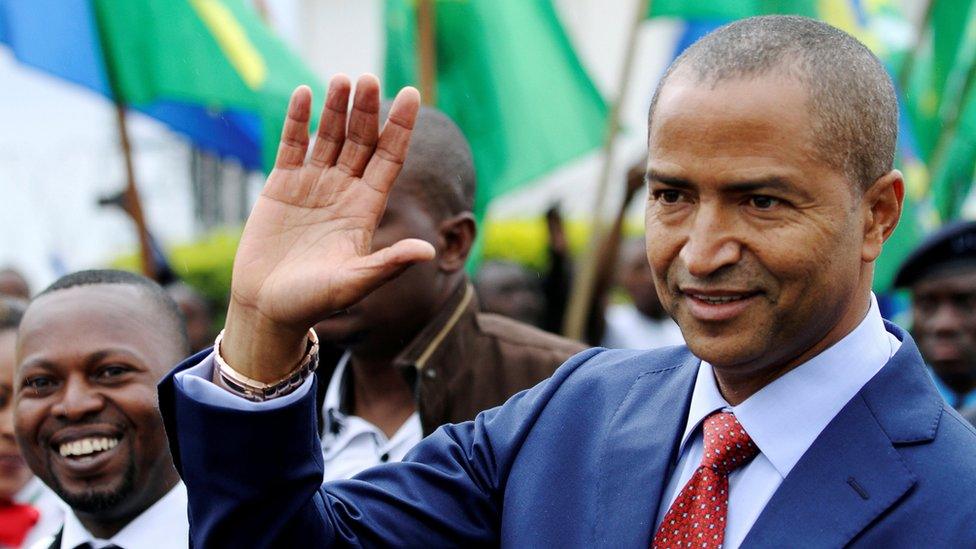
Mr Katumbi was an ally of the president until they fell out
He fled the country before the trial, raising doubts whether he will be able to return to challenge the 19-year rule of the Kabila dynasty in one of Africa's richest countries.